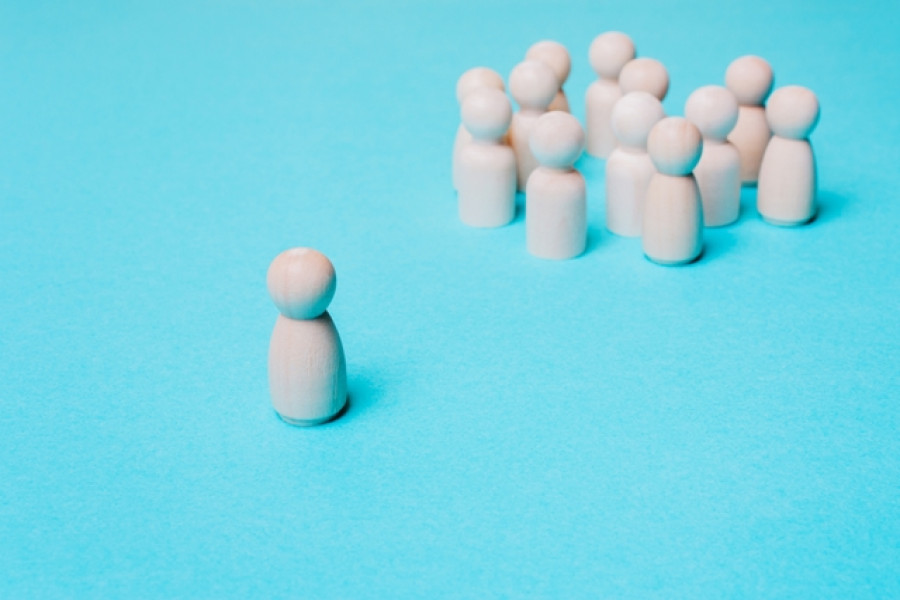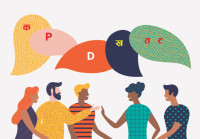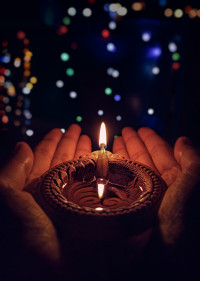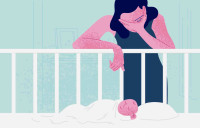As it is
The lived experience of a ‘low caste’ Newa person
For a person belonging to an oppressed caste group, the path to reclaiming and embracing one’s culture and caste isn’t easy.
Ankit Khadgi
I was born in Kathmandu on a hot summer day of May in the year 1997.
Since both my parents were experiencing parenthood for the first time, my birth had them going through a series of emotions. My mother, in particular, was more excited and thrilled to start her new journey. At the time of birth, I weighed almost 5 kgs and that made the delivery very painful and laborious for my mother.
Looking back, my mother says that her family’s (except one of her sisters) decision to not visit her in the hospital hurt her more than the physical pain of the labour.
The sole reason for her family to not show up during the delivery was because I was a child born from an inter-caste marriage, which her family didn’t want for her. To her family, she had committed an unforgivable sin by marrying my father, who belongs to the so-called lower caste Newa community. They believed my birth brought disgrace to their otherwise ‘respected’ reputation.
One of my earliest memories is of being discriminated against by my maternal grandfather. Whenever I arrived at my mamaghar, he would always give me the cold shoulder and always had a disgusted look on his face. The same treatment would not be meted out to his other grandchildren. Back then, I was too young to analyse his behaviour, but as I grew older, I understood that his behaviour towards me was indeed discriminatory.
His discriminatory attitude continues to affect me, and it is probably the reason why years after his demise, I still feel uneasy visiting my mamaghar.
My maternal grandfather’s discriminatory behaviour was just the beginning of the caste-based discrimination I had to face. There have been several occasions when I had to face prejudices, both inside and outside my social circle. Some people have gaslighted my experiences. Some have said that I am making a mountain out of a molehill. And some have even had the audacity to say that my community is discriminated against because of our own ‘uncivil’ behaviour.
Born into a Khadgi caste group of the Newa community, who traditionally were butchers (kasai), most of my family members have also endured caste-baste discrimination throughout their lives.
While things have gotten a bit better for my generation, the generations before us had to face the direct wrath of the casteist social system.
“Just twenty years ago, when upper-caste Newa people invited us for bhwye (feasts), we were made to sit separately. We were only allowed to eat after they finished their meals,” says one of my fupus, as we sat down one evening to talk about the caste-based discrimination our family has faced.
My fupu told me that in those times, no one in our family spoke against the prejudices they were subjected to.
For instance, my paternal great-grandfather, Master Ratna Das Prakash, who was a celebrated theatre and musical artist, was jailed. When he was released, he was made to sign a declaration by the Ranas that prevented him from pursuing his career in arts and theatre. The sole reason why he was forced to quit his passion was that the upper caste people felt threatened by his talent and didn't want him to succeed in his field because a person like him who belonged to a ‘lower caste’, should always be beneath them.
I cannot fathom the emotional and mental turmoil he went through when he was jailed and even chained. He probably must have felt like a bird whose wings were clipped. I wonder if he ever wanted to revolt against the system that refused to see him as an equal human being. He accepted the humiliation and remained silent till he died.
And that silence passed on to his future generations. Many thought that it’s better not to disclose their caste, especially among upper-caste Newa people.
I experienced this firsthand when my fupu took me to a clinic for a checkup when I was in my mid-teens. The doctor who was examining me was from an ‘upper caste’ Newa community. When the doctor asked my name to fill in the prescription form, my fupu told him that our surname was Shrestha, an ‘upper’ caste group in the Newa community.
“I knew it. You guys look like Shresthas,” the doctor told us.
What amazed me was what made the doctor think that we could be Shresthas. We looked and were dressed like any other Nepali. We even spoke like any other Nepali. But at that moment, what I found more troubling was my fupu’s lie.
When we returned home, I confronted her.
“Why did you lie? We aren’t Shresthas. We are Khadgis,” I told her, venting my anger.
She listened to me patiently and said, “It’s better to lie and live with respect and dignity than, to tell the truth, which will lead to ostracisation and discrimination.”
Given the countless times, she must have had to face discrimination, I understood why she did what she did.
Every time I think about caste-based discrimination, that particular conversation plays in my mind. Whenever and wherever possible, most of my family members have lied about their caste. I have many family members who have even gone as far as completely changing their surnames into ‘upper caste’ surnames in their legal documents.
Growing up, my own parents made a conscious decision to only use my mother’s surname behind my first name. I was too young and naive to understand why they did so. But later I learned that it was their way of trying to protect me from the caste-based discrimination they were subjected to.
It’s only now that I have been able to reclaim and embrace my caste. And writing this piece took tremendous effort and a great deal of unlearning for me. For people belonging to marginalised and oppressed caste groups, it’s not easy to accept their identity.
From the day we are born, we are constantly reminded of our ‘position’ in society and that we are always beneath the ‘upper caste’ people. We are always confined to our last names, and our lifestyle and cultures are deemed as ‘uncivilised’. The work we do and the value we add is never recognised and acknowledged. Society treats us in such a way that our birth in our community is considered a curse or a matter of shame.
And because of such social structure that never sees us as equal beings, we feel embarrassed and even ashamed to embrace our caste. I have felt the same, and I know others have as well.
Only a few have mustered up the courage and resilience to fight for their rights and dignity, which has given me a glimmer of hope, and I genuinely believe that things will turn out okay for us in the future—and we can live a life without ever having to feel the need to conceal our identities.




 13.12°C Kathmandu
13.12°C Kathmandu










